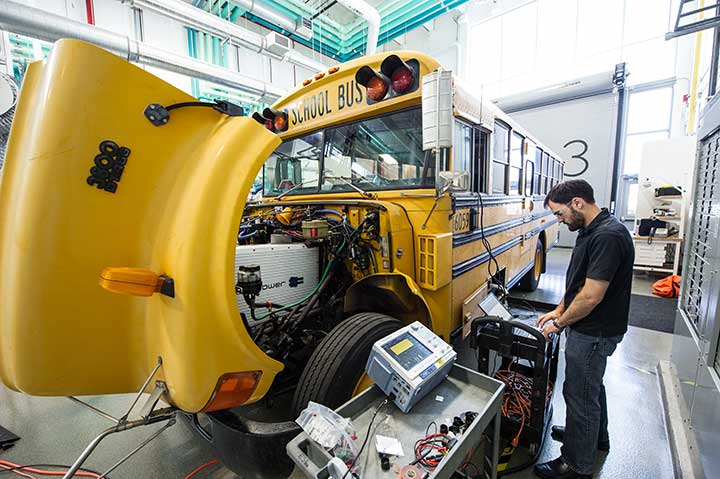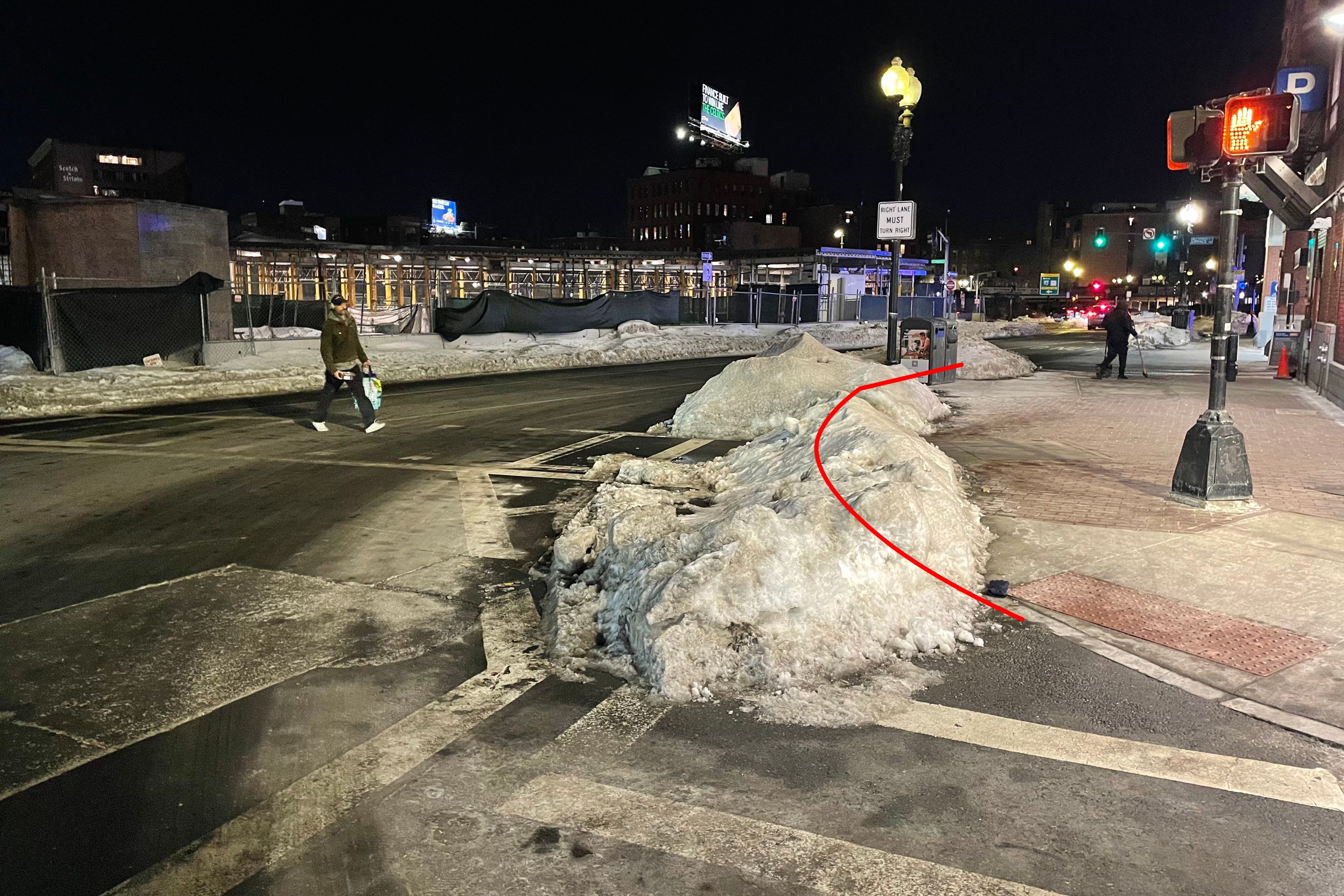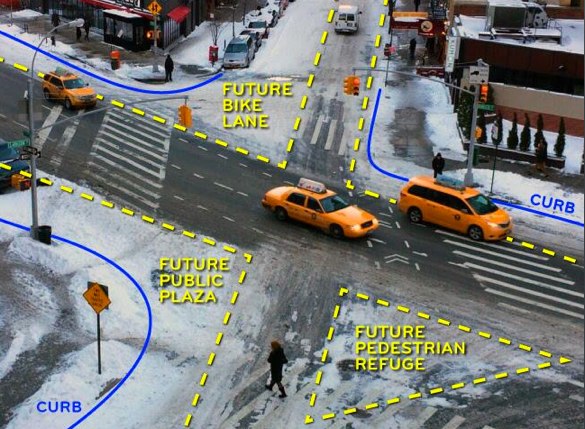Last Friday, the Massachusetts Department of Environmental Protection (MassDEP) announced that it would weaken two regulations that would have considerably reduced tailpipe emissions from the biggest trucks on the road.
The "Heavy Duty Omnibus" (HDO) regulation would have required new trucks to emit 75 percent less nitrogen oxide pollution and 50 percent less particulate matter pollution starting with model year 2025, with increasingly stringent reductions in future years.
Another rule, the Advanced Clean Trucks (ACT) regulation, requires a certain percentage of new trucks and delivery vans sold to run on electric engines.
The state of California adopted the original HDO and ACT rules in 2020. Under Massachusetts state law, which requires the Commonwealth to adopt the same vehicle emissions standards as California, Gov. Charlie Baker's administration moved to adopt the same rules in late 2021.
Those rules had been scheduled to go into effect in just a few months, in January 2025.
But late last week, the Healey administration announced that it would delay the HDO rule until 2026, and carve out exemptions to let state and local governments avoid ACT compliance with certain types of public works vehicles.
Pollutants put communities of color at higher risk
With its specific focus on smog-forming nitrogen oxide emissions and fine particulate pollutants, the HDO rule could have had a considerable impact on public health.
According to the Union of Concerned Scientists, medium- and heavy-duty trucks make up only 7 percent of all the vehicles in Massachusetts, but they generate more than 40 percent of airborne soot and nitrogen oxide pollution in the transportation sector.
Those pollutants contribute to chronic health problems like heart disease and asthma.
Those health hazards are especially pronounced in communities near major highways and industrial zones – infrastructure that is more likely to be located in neighborhoods with higher populations of people of color.
"We’re home to big trucking industries, and one of the unfortunate consequences is that these trucks pollute our air," explained Barbara Espinosa Barrera, an Environmental Justice and Health Equity Organizer for GreenRoots in Chelsea. "Our city has one of the highest rates in the state for asthma and hypertension, which are associated with these pollutants."
Trucking industry lobbies for delay
The trucking industry has been lobbying intensely to delay enforcement of the HDO and ACT rules, in Massachusetts and in several other states that typically adopt California's clean air rules.
"The infrastructure and technology do not exist to support either of these rules in the Commonwealth at this time," argued the Trucking Association of Massachusetts in an October 16 letter to the Healey administration.
"Massachusetts has not made enough progress on building out a network of public or private charging stations for commercial vehicles," the Trucking Association's letter continued. "Further, even if many of the companies could afford an electric MHD (medium- or heavy-duty) truck option, the most important fact remains that an electric option does not yet exist for many of the MHD trucks that are needed by almost every industry."
The letter was co-signed by 50 businesses and lobbying groups, among them the Boston Chamber of Commerce, Stop & Shop Supermarkets, and the United Parcel Service.
Just two days later, on Friday, Oct. 18, the Massachusetts Department of Environmental Protection (MassDEP) announced that it would put off the HDO regulation until 2026, allowing truck dealers to sell dirtier engines for one more year.
MassDEP also announced that it would carve out exemptions in the ACT electric truck regulations to let state and local government agencies, like MassDOT and municipal public works departments, continue purchasing fossil-fueled snow plowing equipment, dump trucks, and street sweepers.
"Municipalities have also expressed challenges with identifying electric trucks that serve their needs and concerns about charging infrastructure, particularly for handling potential snow emergencies," according to an update posted to the MassDEP website.
Climate goals slip further out of reach
Transportation is the largest source of climate-heating pollutants in Massachusetts, and the state's climate plans lean heavily on regulations like the ACT rule to meet its short- and medium-term greenhouse gas reduction targets.
As we've reported previously, the state is on track to miss its target for passenger vehicle electrification by a wide margin.
Adding loopholes that delay the electrification of heavy-duty trucks would put the state further away from meeting its targets.
After StreetsblogMASS reached out to the Governor's environmental cabinet on Wednesday afternoon to ask if the state would pivot to other, more impactful measures to reduce tailpipe pollution, a spokesperson for the office answered that the administration is still "committed" to its current path.
“These reasonable adjustments bring Massachusetts in line with other states and ensure that our public safety and municipal partners can still get the equipment they need as the electric truck market matures," Fabienne Alexis, a MassDEP spokesperson, told StreetsblogMASS. "We’re committed to continuing to expand our state’s charging infrastructure and promoting electric vehicle adoption. We look forward to the innovations the manufacturing industry will be rolling out in the years to come.”






